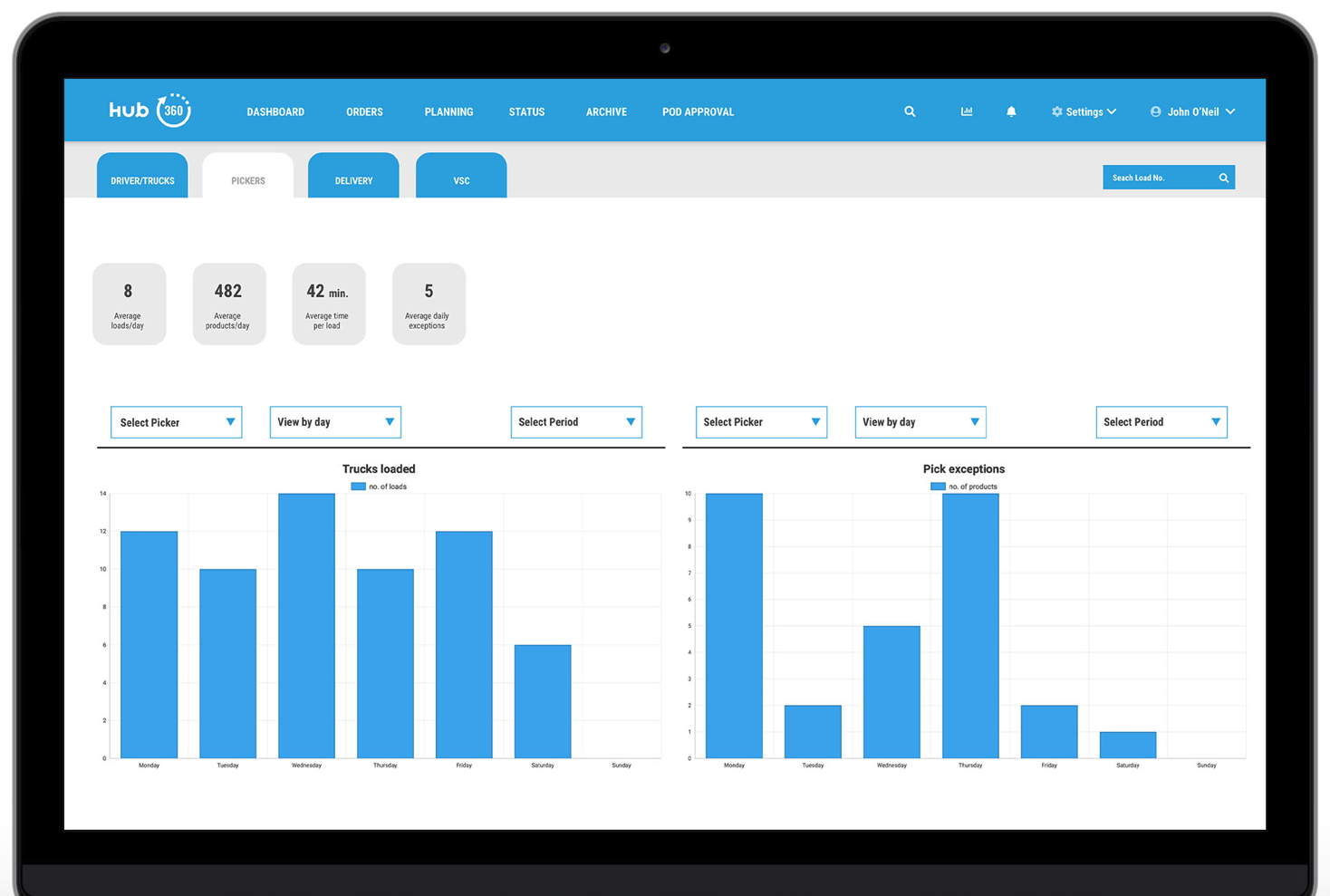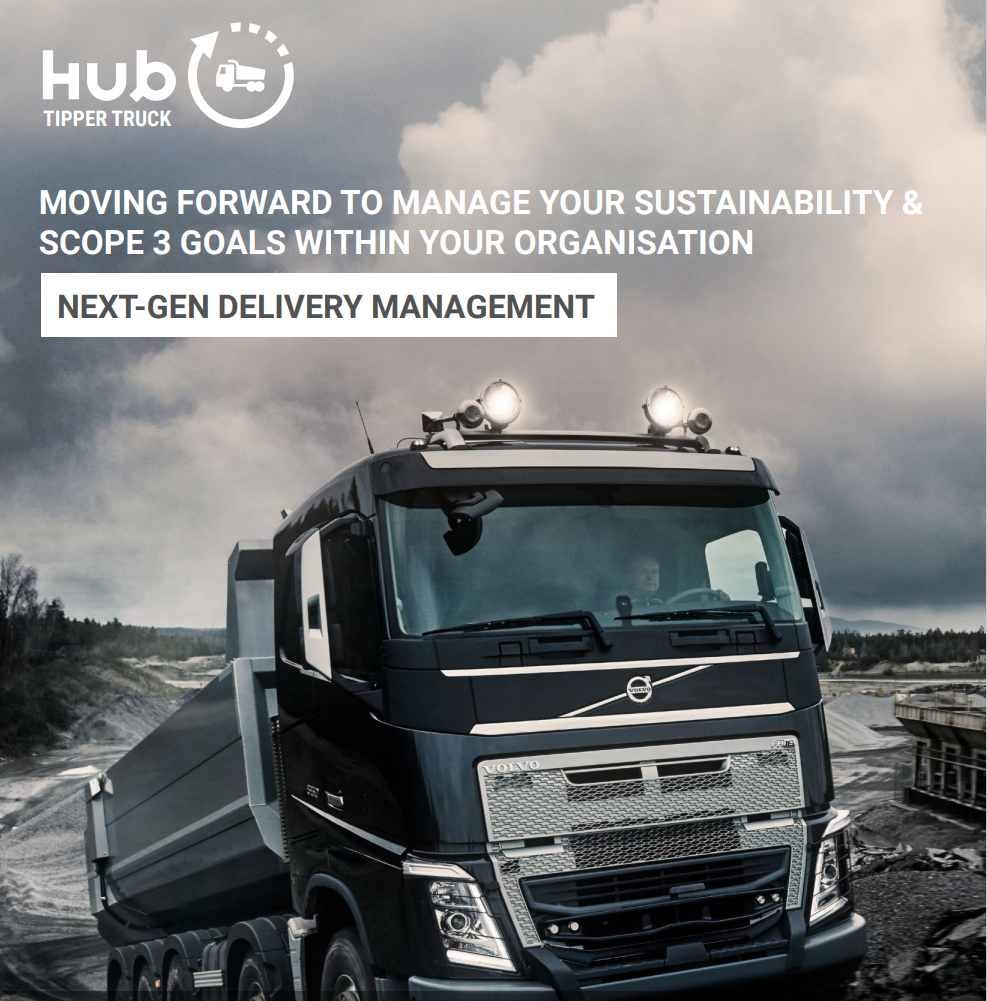Verifiable Data for Transparency and Accountability with Hub360
In the construction industry, transparency and accountability are crucial. Project owners need to know what materials have been used on-site and what materials and waste have gone off-site. They are responsible for ensuring these materials are disposed of or moved to their intended destinations. Hub360 provides a comprehensive solution with verifiable data, ensuring that all movements related to site operations are accurately documented and transparent for everyone involved. In this blog post, we'll explore how Hub360's verifiable data enhances transparency and accountability, transforming site management practices.
How Hub360 Contributes to Compliance with EFRAG Reporting Requirements
As the European Financial Reporting Advisory Group (EFRAG) tightens its guidelines for sustainability reporting, companies must adapt to these comprehensive standards. Hub360 is a powerful tool that aids organizations in meeting these requirements by efficiently collecting, managing, and reporting relevant data. Here’s a detailed look at the data points from the draft EFRAG list where Hub360 contributes significantly.
Uniting the Construction Sector: Hub360's Vision for a Circular Economy
In the face of escalating environmental concerns and the urgent need to transition towards sustainable practices, the concept of a circular economy has emerged as a beacon of hope, particularly within the construction industry. Hub360, with its commitment to innovation and sustainability, stands at the forefront of this transformation. The approach taken by the Hub360 platform highlights a fundamental truth: achieving a circular economy in construction depends on a unified commitment to responsible material management and stringent oversight of resources.
Hub360 Transforming Road Planning & Site-Won Asphalt Management for Asphalt Producers
At the core of the Hub360 platform is its robust ability to meticulously track and document every significant detail of site-won asphalt material movements, enhancing compliance and operational oversight for road planning and RAP plant management.
7 Reasons to Shift Away from Paper-Based Material Management in the Construction Sector
Paper-based systems are inherently prone to human error. Misplaced orders, lost documents, and data entry errors can significantly impact project timelines and budgets. Digital material management systems, however, offer real-time data entry and retrieval, reducing errors and increasing accuracy. For example, using smart tech waste materials can be tracked accurately from site pick up to waste facility. This not only minimises the risk of issues but also streamlines operations, making the management and audit process 100's more efficient.
How Hub360 Supports Accurate Scope 3 Emission Measurements in the Construction Industry
The construction industry faces significant challenges in managing Scope 3 emissions, which include all indirect emissions (both upstream and downstream) that occur in the value chain of the reporting company, excluding scope 2 emissions. These can be emissions associated with the transportation of materials, waste disposal, and even the use of sold products. Understanding and controlling these emissions is not only critical for environmental sustainability but also increasingly for compliance with evolving regulations and standards.
Hub360 & CSRD: Advancing Sustainability and Compliance for Construction & Infrastructure Project Stakeholders
The construction and infrastructure industry faces increasing demands for sustainable practices and strict adherence to regulatory standards. The imminent Corporate Social Responsibility Disclosure (CSRD) mandates are driving the need for user-friendly tools that provide clear transparency and accountability without excessive labour spent on report preparation and compliance verification. Additionally, the industry must account for emissions throughout the value chain. Hub360 stands out as a pivotal resource, fulfilling the diverse reporting needs critical to various project participants such as investors, developers, multinational corporations, and government entities.
Harnessing Hub360 for Enhanced Resource Management in Building and Infrastructure Projects
In today's eco-conscious market, the demand for sustainable project management tools is at an all-time high. Hub360 is emerging as a powerful ally for project stakeholders such as government agencies, local authorities, and developers, who seek to optimize resource use and reduce environmental impact. This platform not only supports compliance with evolving standards but also significantly enhances sustainability practices through advanced data utilization.
Streamlining Compliance: Hub360's Impact on Audits and Environmental Reporting
Navigating the complexities of environmental compliance, including the preparation of Annual Environmental Reports (AER) and regular audits, demands an efficient, error-free reporting system. Hub360 offers a transformative solution by automating compliance reporting and significantly simplifying the audit process.
Unlocking Efficiency and Compliance: The Case for Hub360 in Construction Waste Management
For developers not using the HUB360 Tipper App, several pain points arise, especially when managing construction and demolition (C&D) waste and aggregate materials within the rigorous compliance frameworks and environmental sustainability goals. These challenges include:
Streamlining Delivery Operations: How Hub360 Empowers Transport Planners
In today's fast-paced world, efficient delivery operations are vital for businesses across various industries. Transport planners play a crucial role in managing driver and truck delivery jobs, optimising resources, and ensuring effective communication with customers and drivers. With smart mobile technology, solutions like Hub360 means transport planners can now streamline their operations and eliminate traditional paperwork. In this blog post, we will explore how the Hub360 Platform empowers transport planners to enhance efficiency, reduce costs, and improve sustainability in their delivery processes.
Hub360 – Supporting Sustainable Business Practices to lower carbon emissions
The logistics industry is one of Europe's biggest, generating in excess of €900 bn each year and employing more than 7 million workers. It also features the most labour-intensive processes that have traditionally focused heavily on legacy paper-based systems, meaning that it's an industry that's open to disruption by options that offer improved efficiency.












